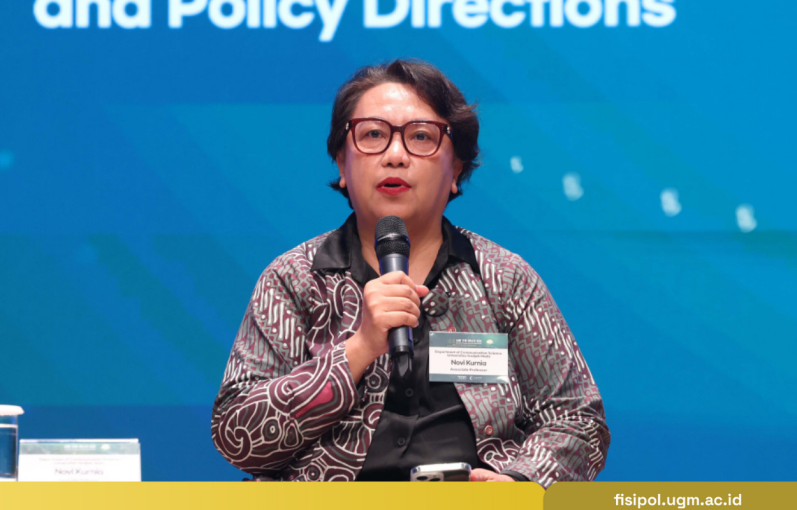
Seoul, June 26, 2025 — As the urgency of the climate crisis continues to intensify, the global community faces a growing obstacle: the spread of misinformation and disinformation that hampers public understanding and concrete climate action. At the prestigious 9th Climate Energy Summit held in Seoul, South Korea, Dr. Novi Kurnia, a lecturer in the Department of Communication Science at FISIPOL UGM and lead researcher at the Centre for Digital Society (CfDS) UGM, delivered a keynote address offering a critical perspective from the Global South on the rampant spread of climate-related falsehoods.
In her speech, Dr. Kurnia emphasized that although public awareness of climate change has grown, the overwhelming presence of misleading information on digital platforms has created a fog of confusion that slows down meaningful responses. This disinformation often includes recurring narratives—denying the existence of climate change, downplaying human contributions, or questioning the effectiveness of environmental policies.
“We don’t just need scientific data,” she asserted. “We need communication that builds trust, is inclusive, and rooted in local contexts.”
She presented recent findings from her research in Indonesia, which revealed that 98% of respondents identified social media as the primary source of climate misinformation, with many still trapped in baseless conspiracy theories. Ironically, while many claimed to recognize fake news, only a small percentage actively produced corrective content. According to Dr. Kurnia, this gap between awareness and action underscores the urgent need to enhance digital literacy, institutional support such as fact-checking platforms, and narratives that reflect the lived experiences of local communities.
Her keynote aligned closely with several Sustainable Development Goals (SDGs), particularly:
-
SDG 13: Climate Action, by addressing the barriers disinformation poses to global climate efforts;
-
SDG 4: Quality Education, through the advancement of media literacy and critical thinking;
-
and SDG 10: Reduced Inequalities, by advocating for the inclusion and amplification of Global South voices in international discourse.
Dr. Kurnia also underscored the need for greater accountability from digital platforms. Opaque algorithms, weak content moderation, and limited support for educational initiatives make the digital information ecosystem vulnerable to manipulation. She called on technology companies to take a more active role in supporting climate journalism, funding fact-checking efforts, and developing inclusive media literacy tools.
A key point raised in her speech was the unequal access to credible information among underserved communities. “Climate justice cannot be achieved if only a privileged few have access to accurate information,” she stated. Dr. Kurnia urged that climate narratives must also uplift the voices of marginalized communities who are often excluded from global media flows.
In the closing segment, she discussed the potential and challenges of artificial intelligence (AI) in combating disinformation. While AI can rapidly detect and trace the spread of false content, it also poses risks including bias, lack of transparency, and ethical concerns.
“The human element—especially those embedded in local social and cultural contexts—remains essential and irreplaceable,” she concluded.
She also highlighted a range of grassroots initiatives in Indonesia aimed at building community capacity to produce fact-based, context-specific climate content, while fostering cross-sector collaboration between government, academia, civil society, and tech platforms.
The forum featured distinguished speakers from global institutions, including Somya Joshi of the Stockholm Environment Institute (SEI), Daniel Castro of the Information Technology and Innovation Foundation (ITIF) and Center for Data Innovation, Minjung Jin of the Korea Press Foundation, YongNyuo Shin of Microsoft Korea, and Jaegul Lee of the Korea Electric Power Corporation Research Institute.
With more than 400 participants attending both online and in person, the 9th Climate Energy Summit served as a vital space to reinforce global commitments to climate action that go beyond science—anchored instead in ethical communication, social justice, and the power of truthful information.
In an atmosphere of urgency and collaboration, voices from the Global South—such as that of Dr. Novi Kurnia—offered a powerful reminder: climate justice begins with access to the truth.
